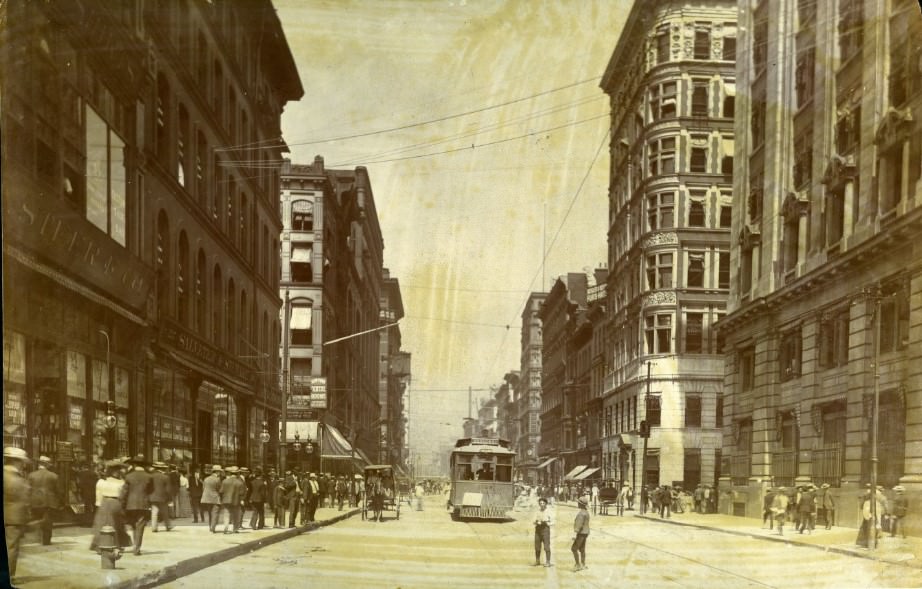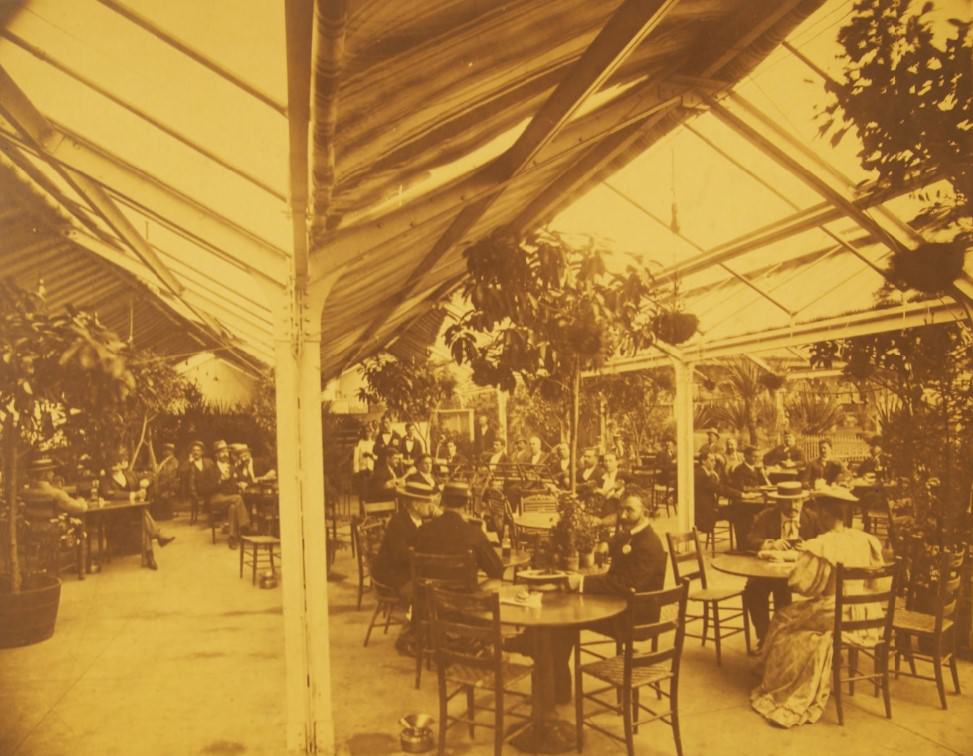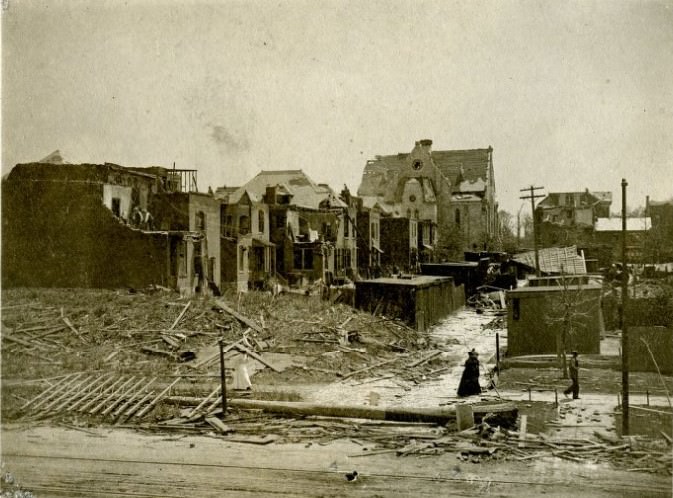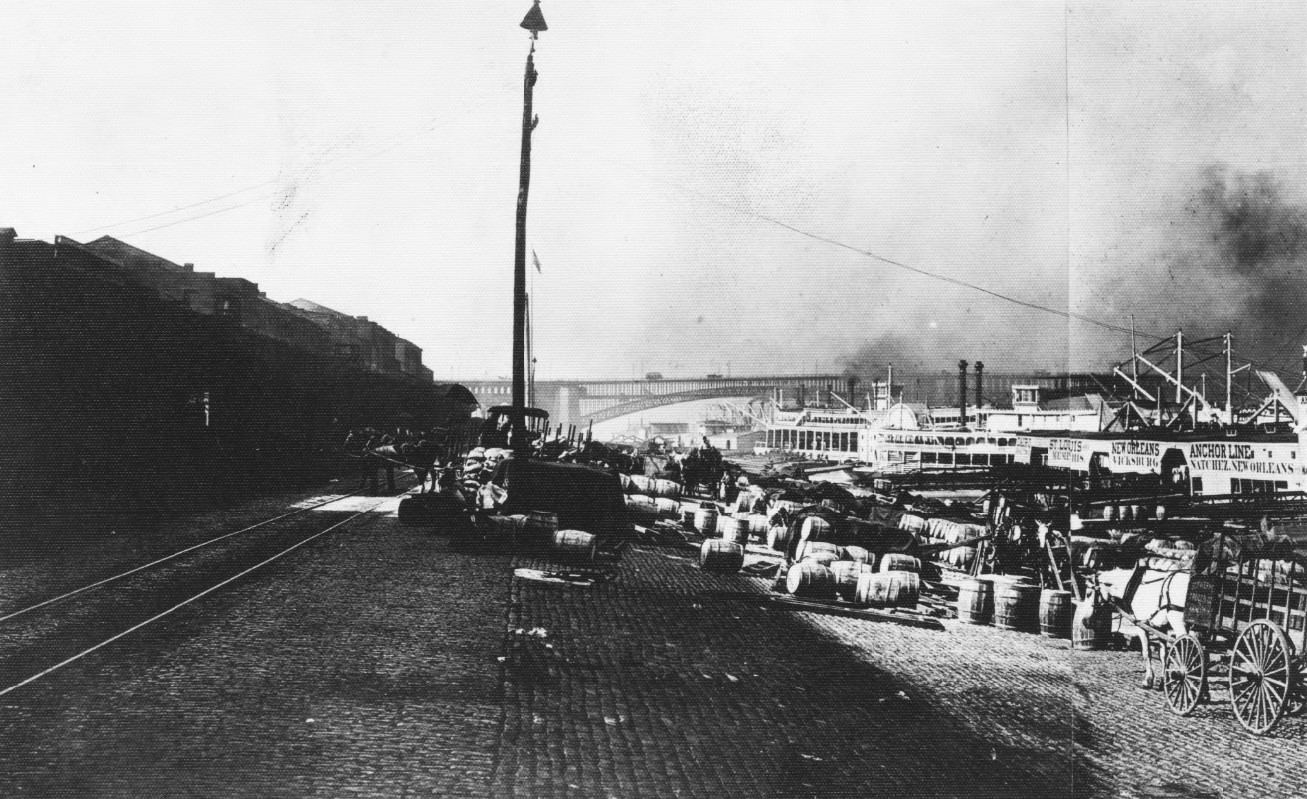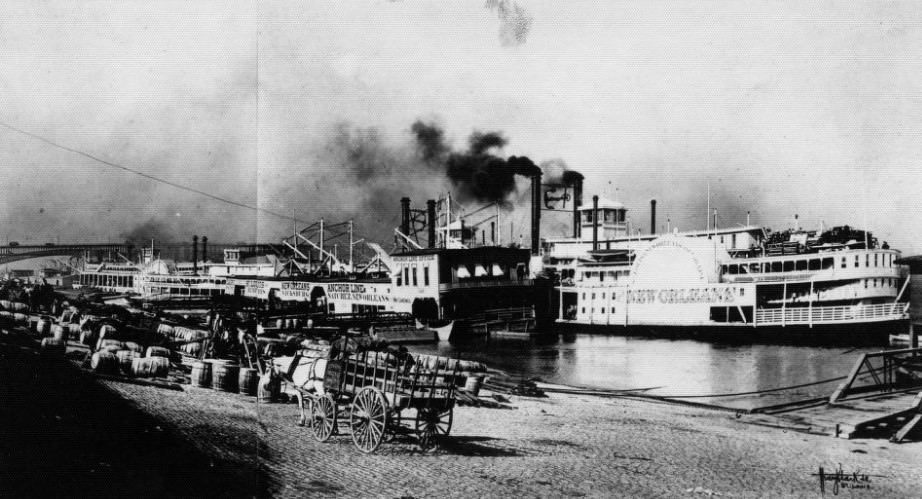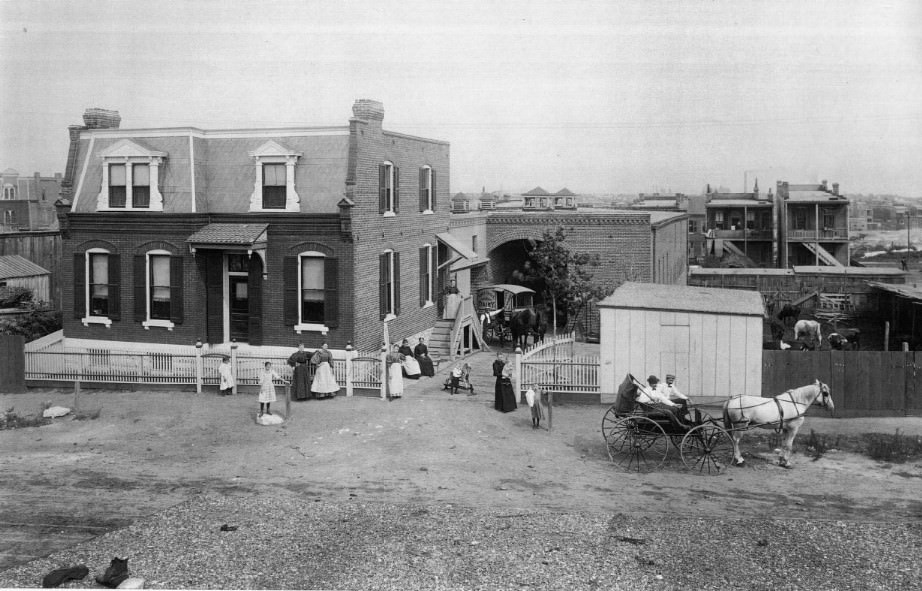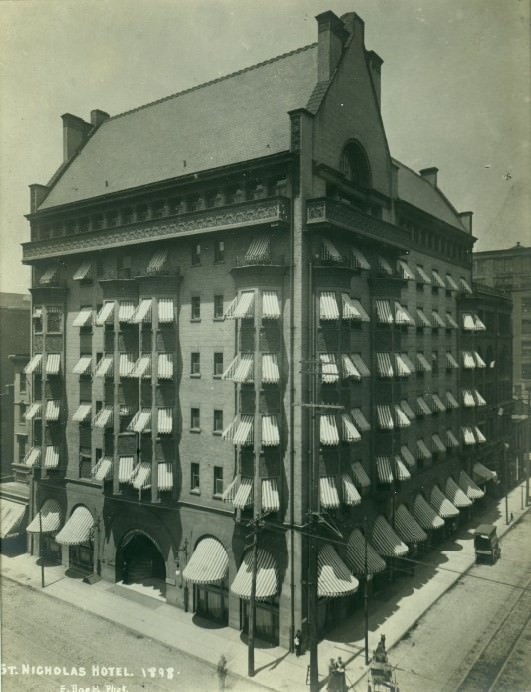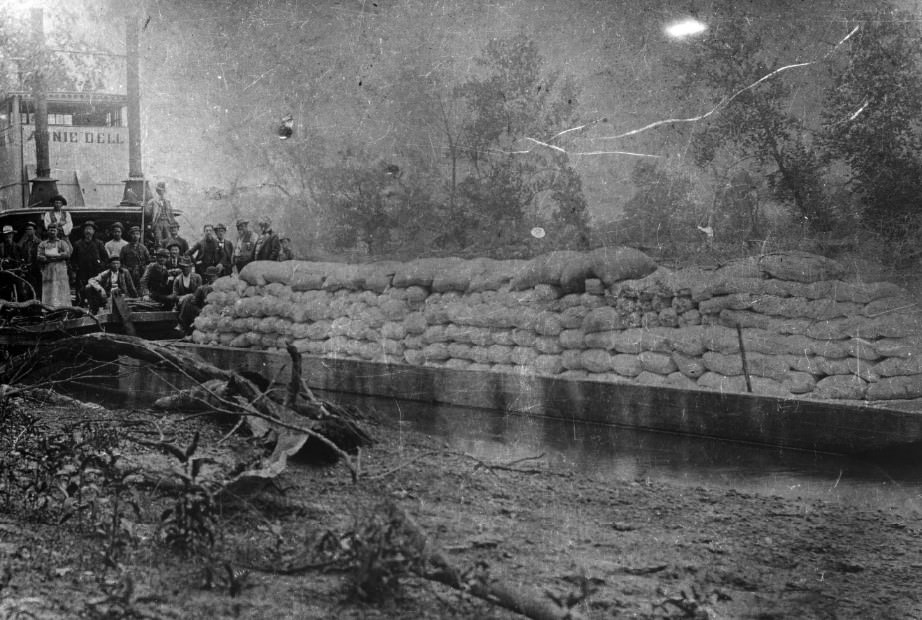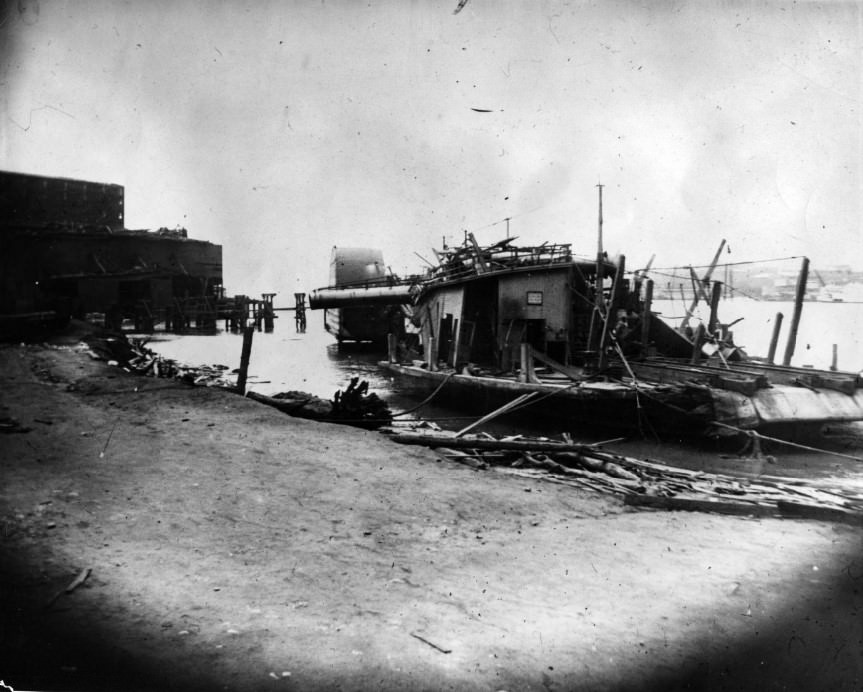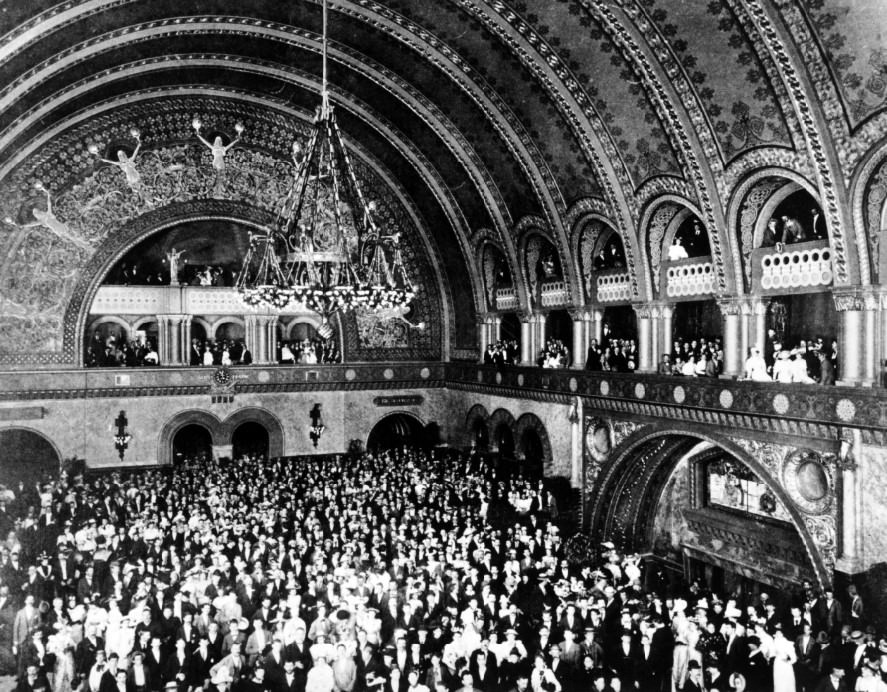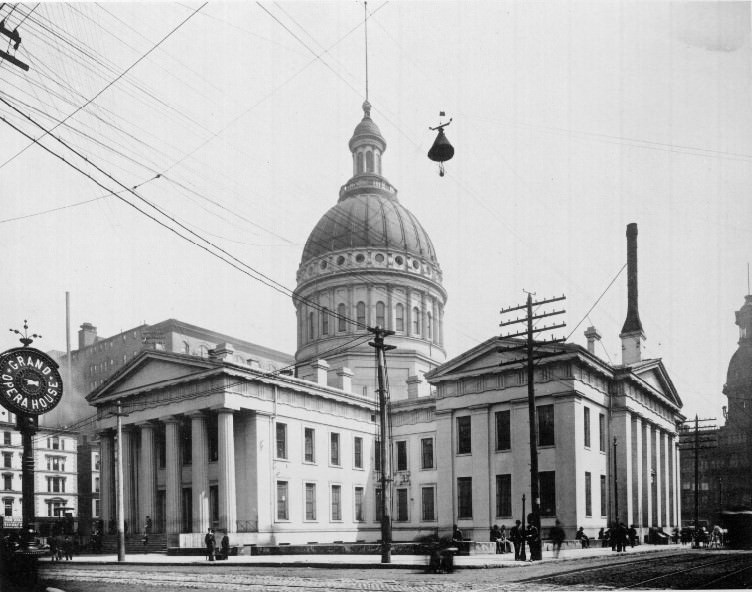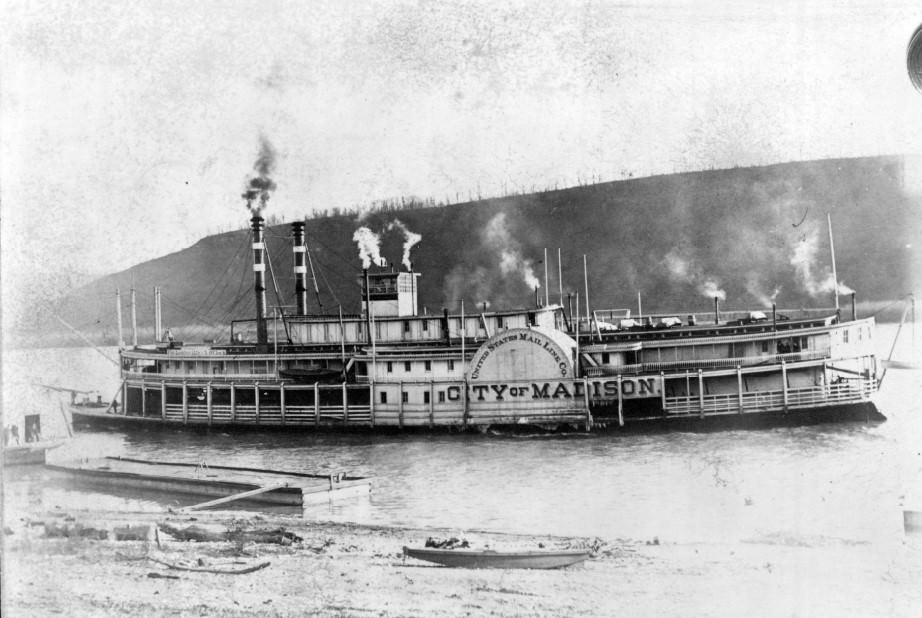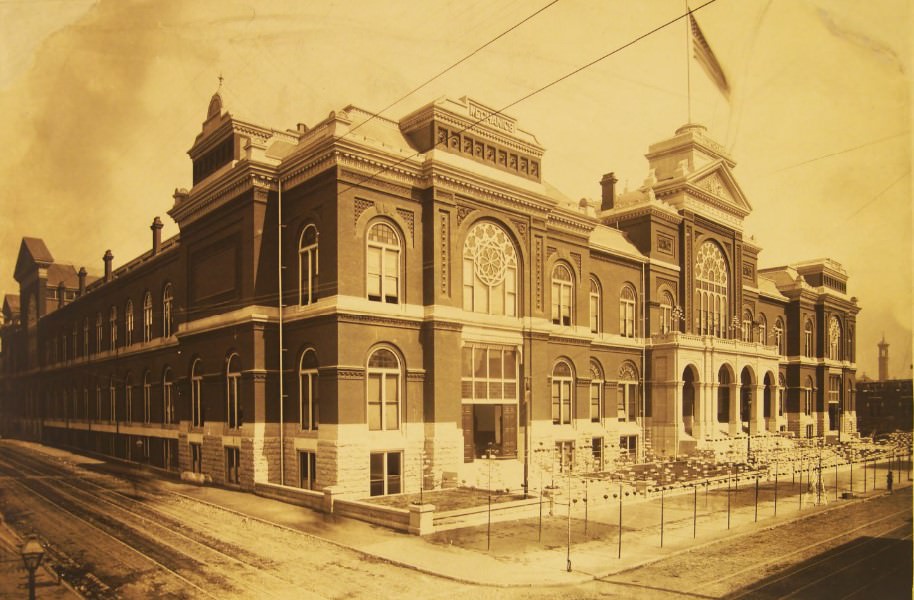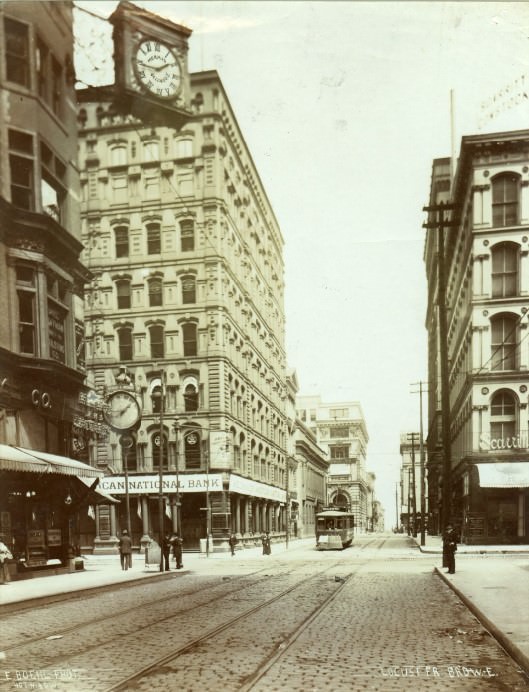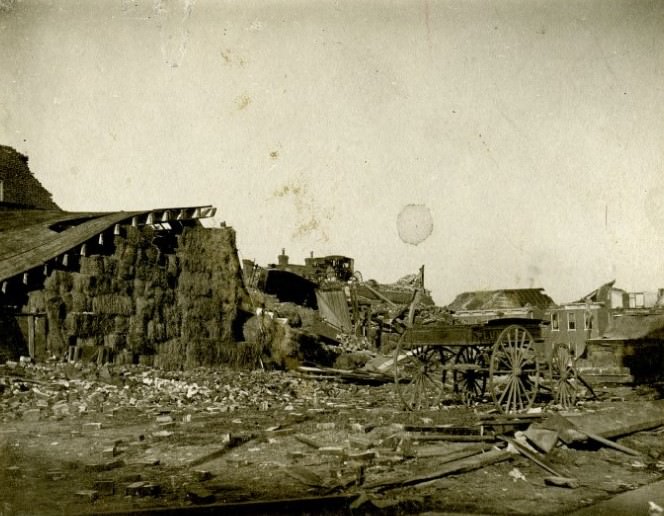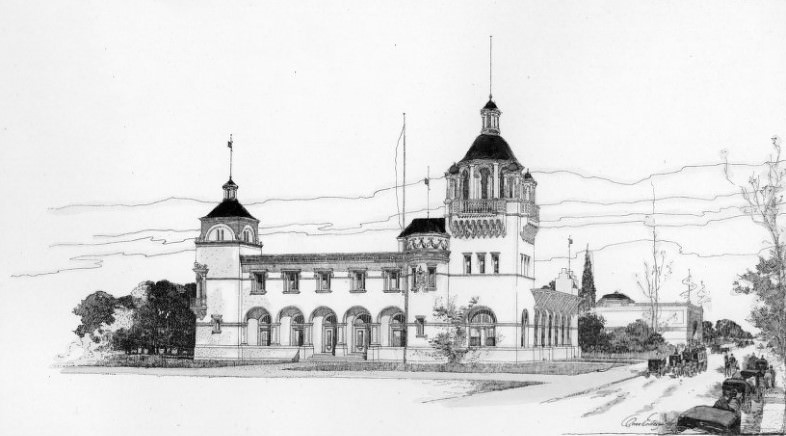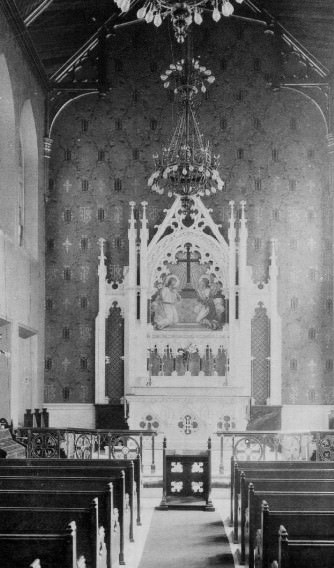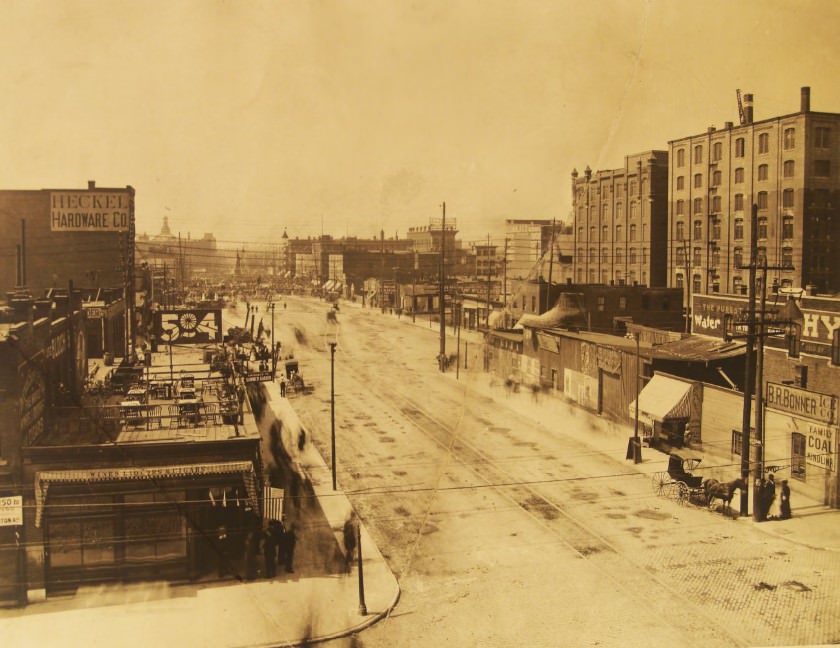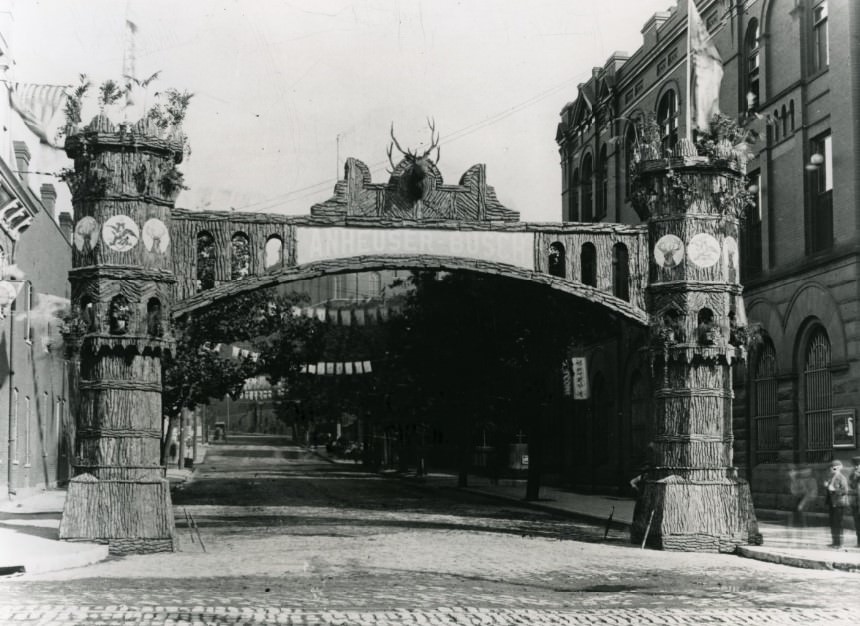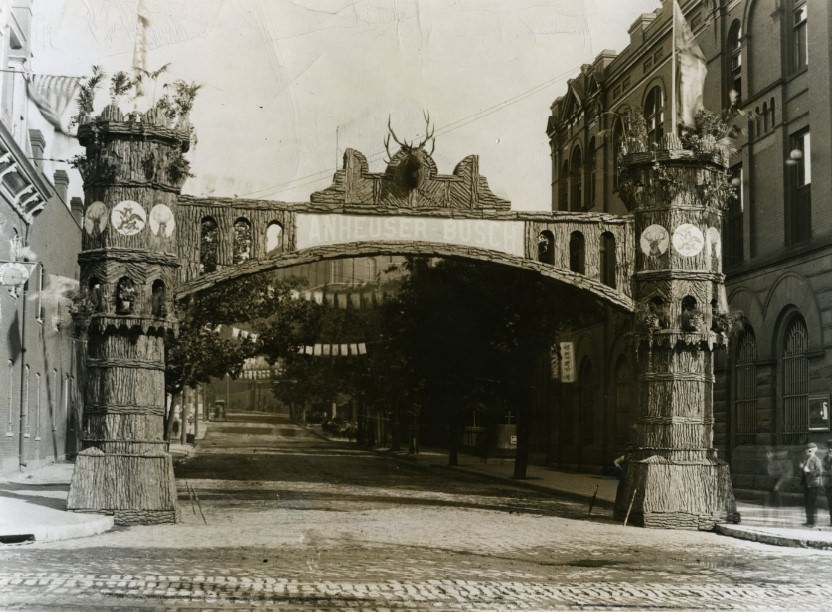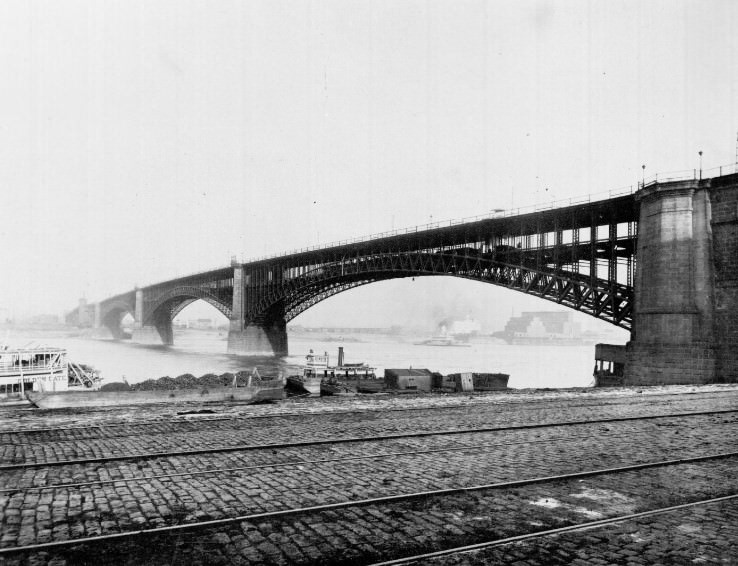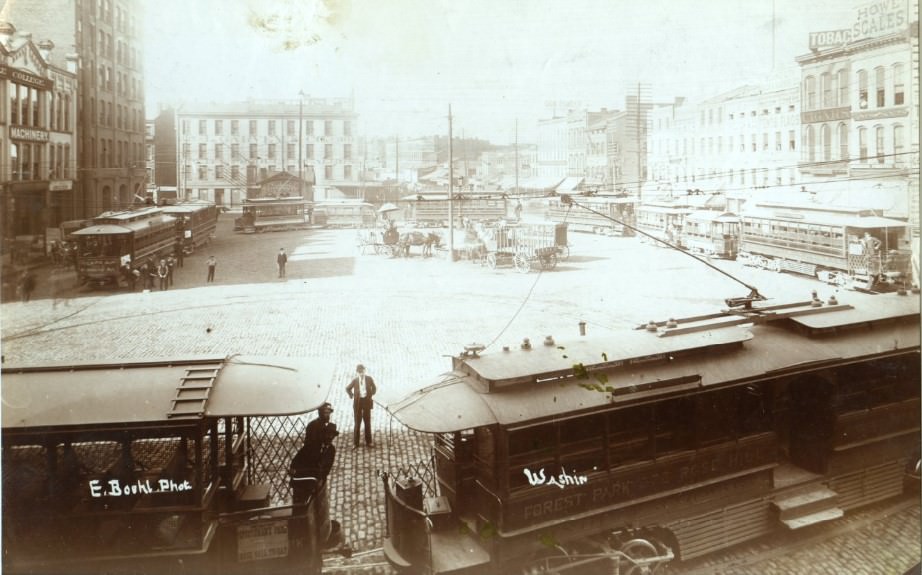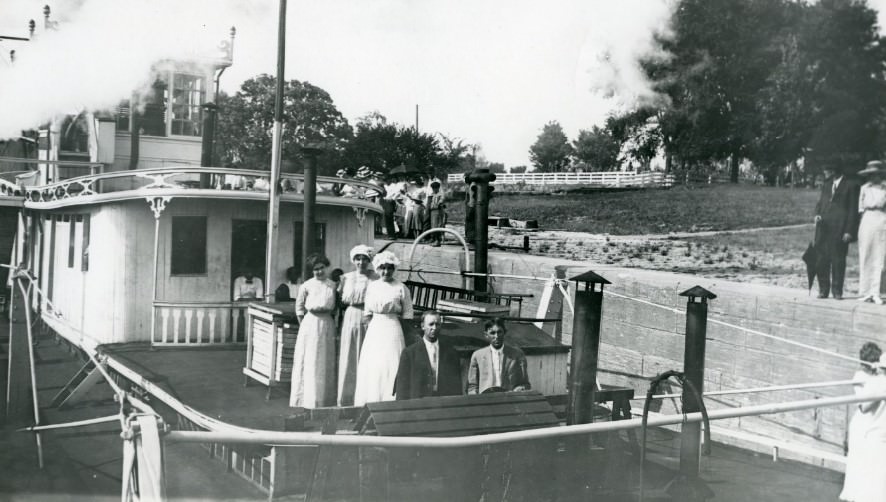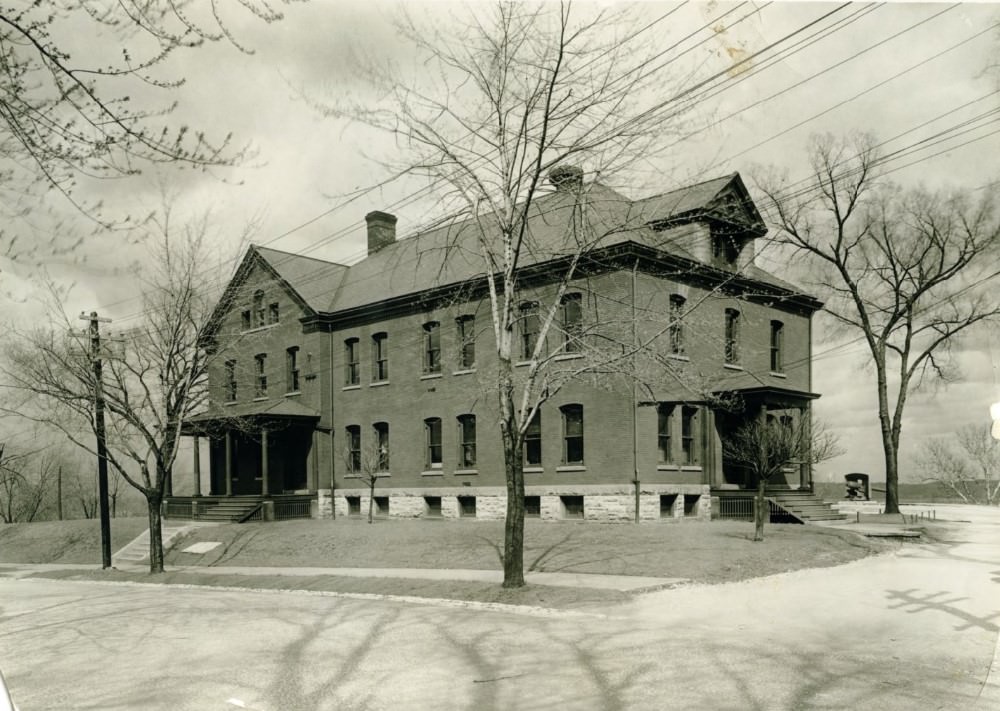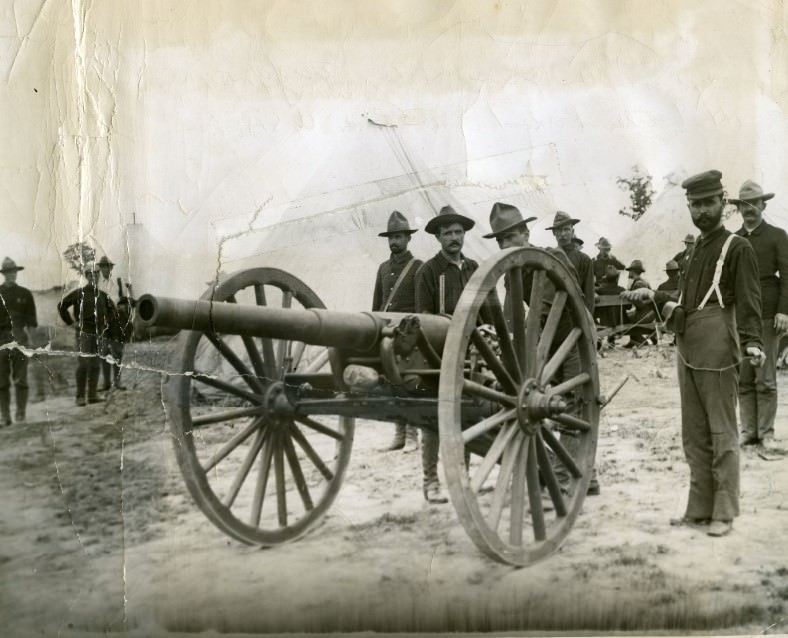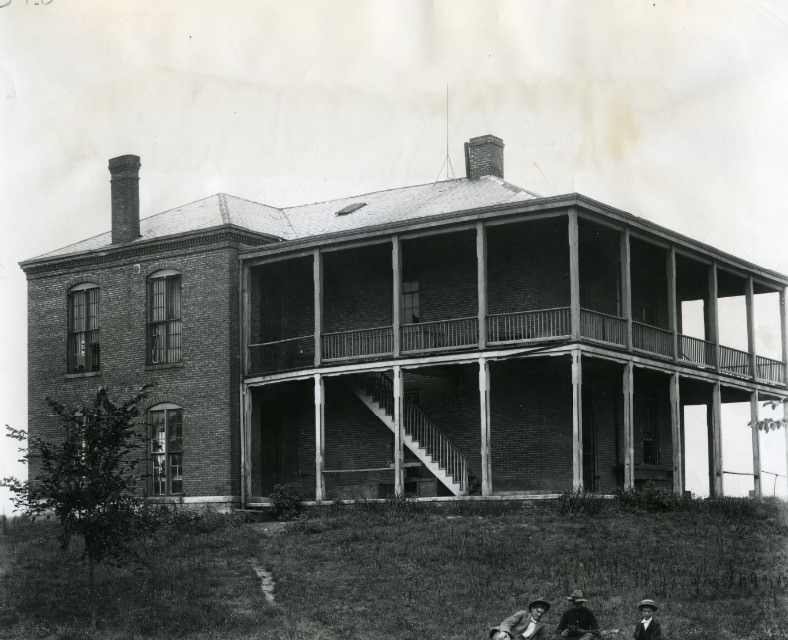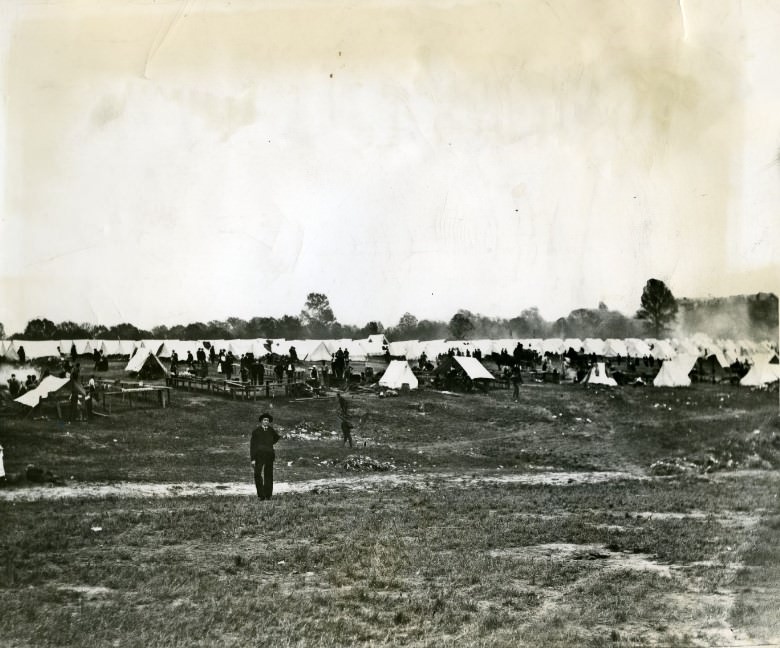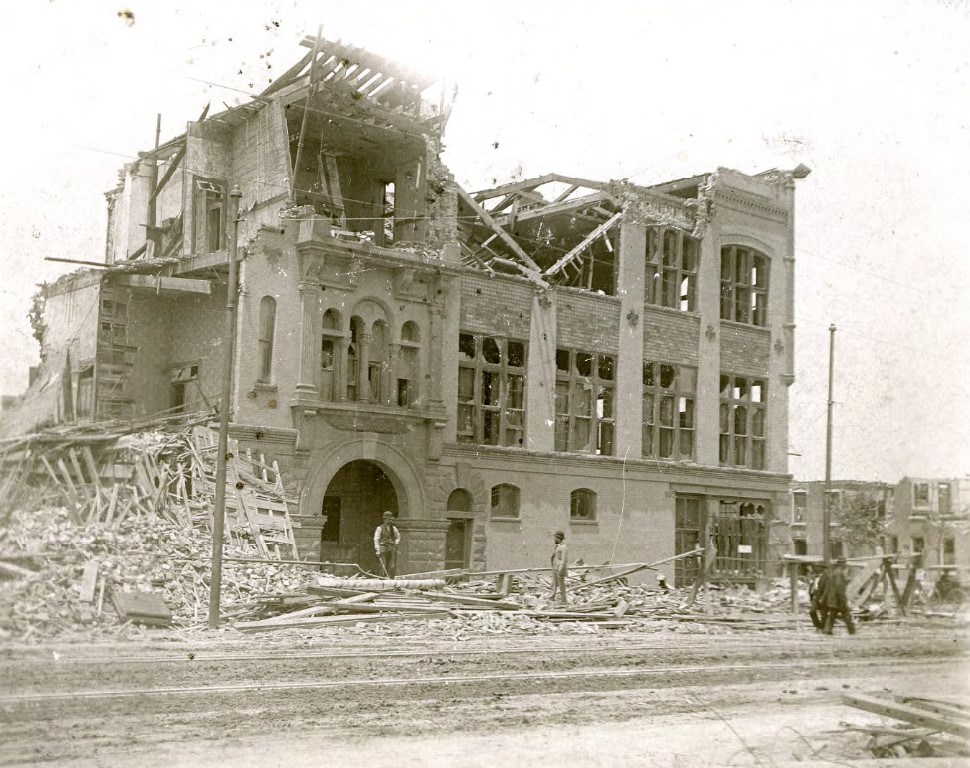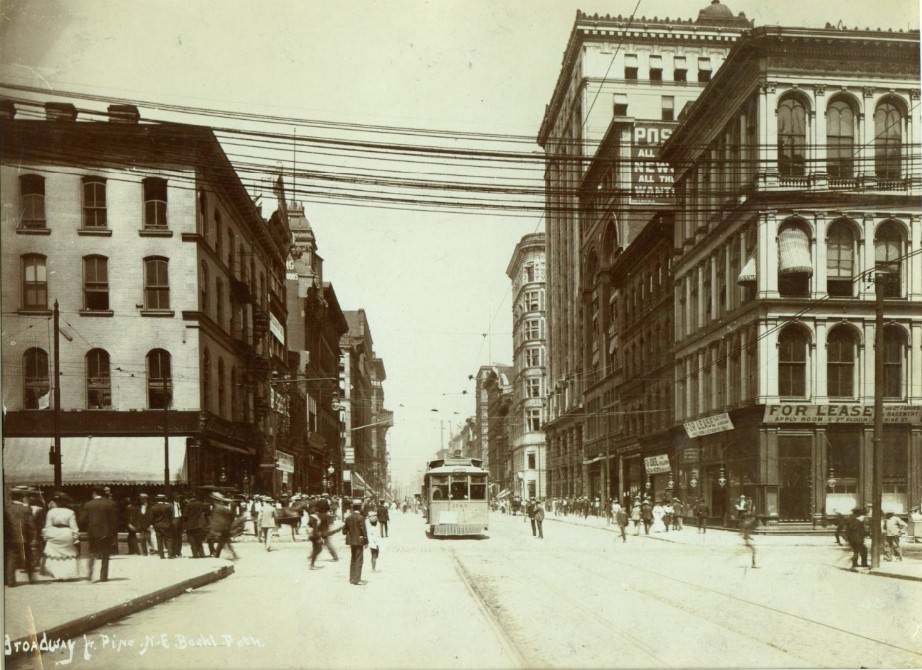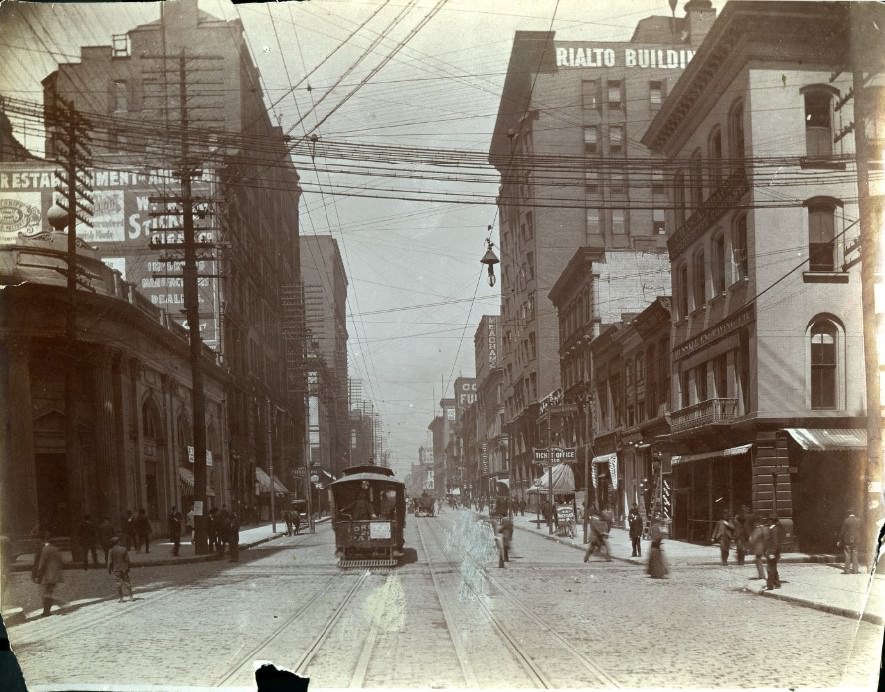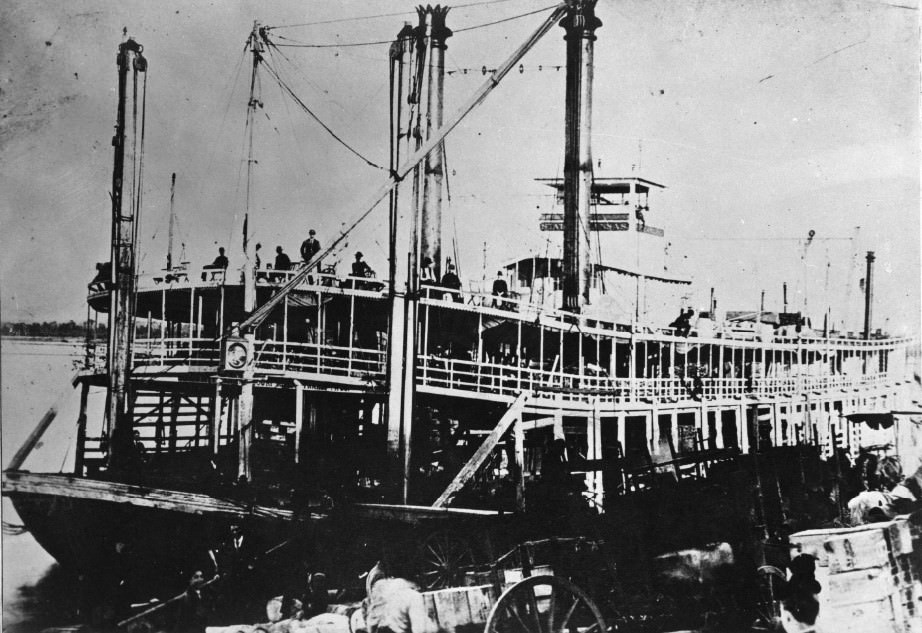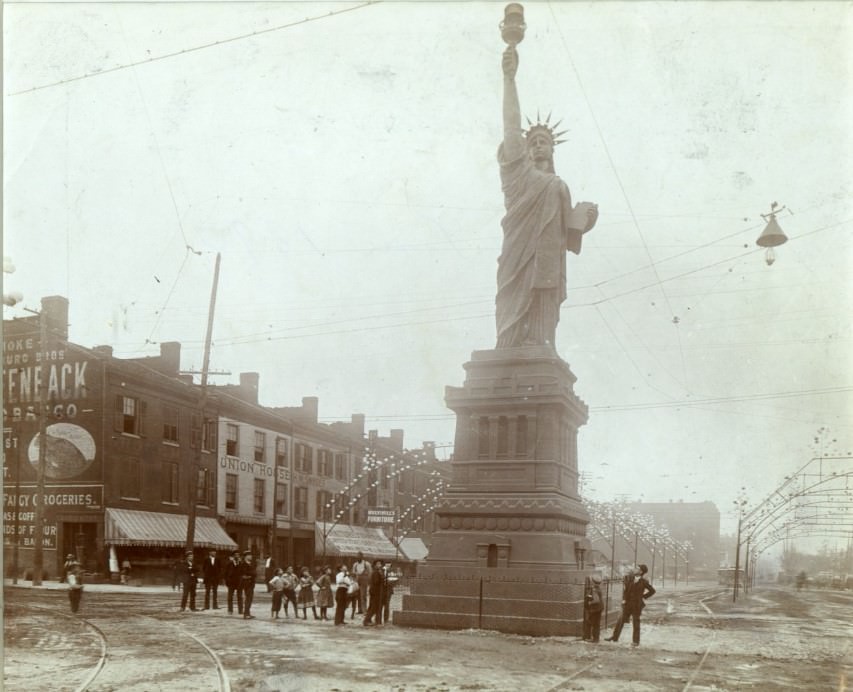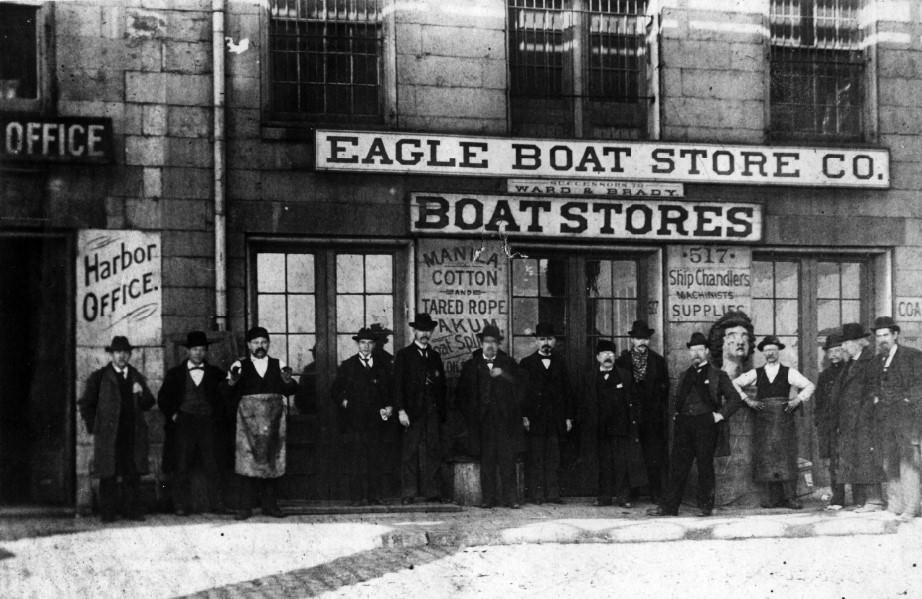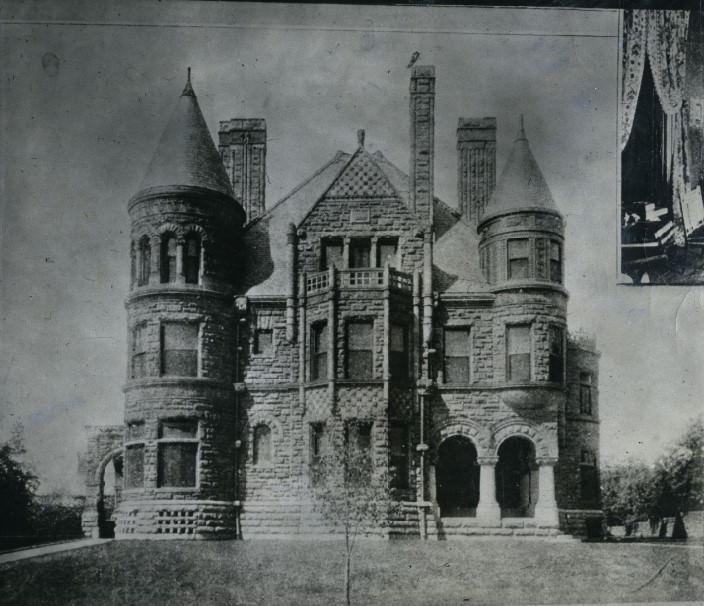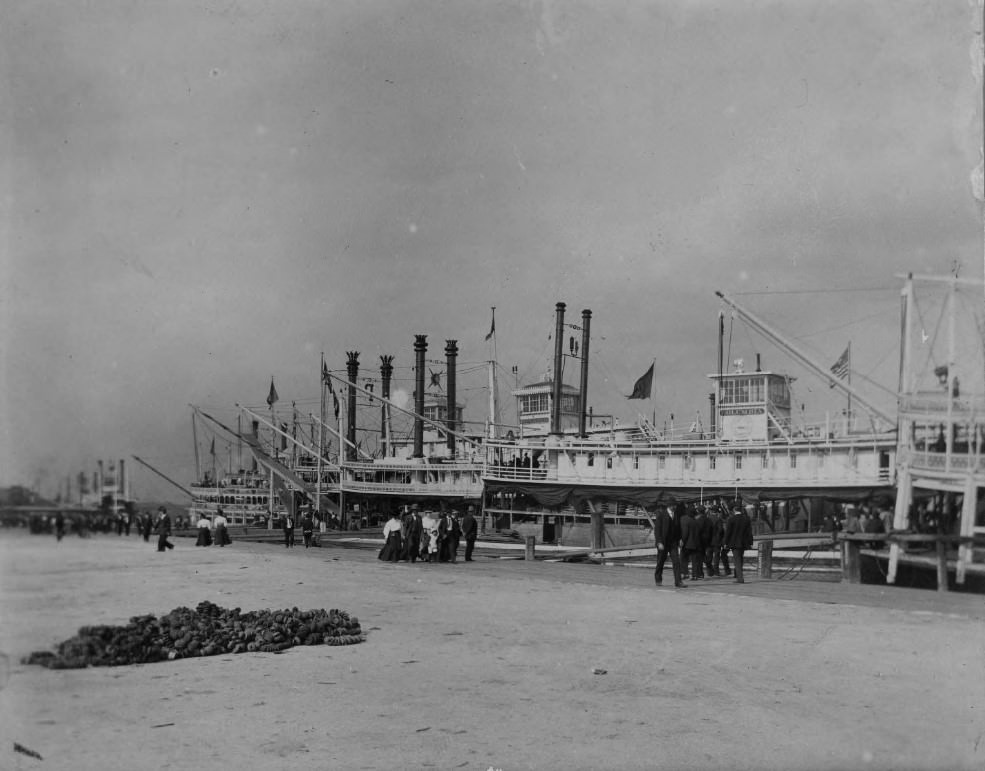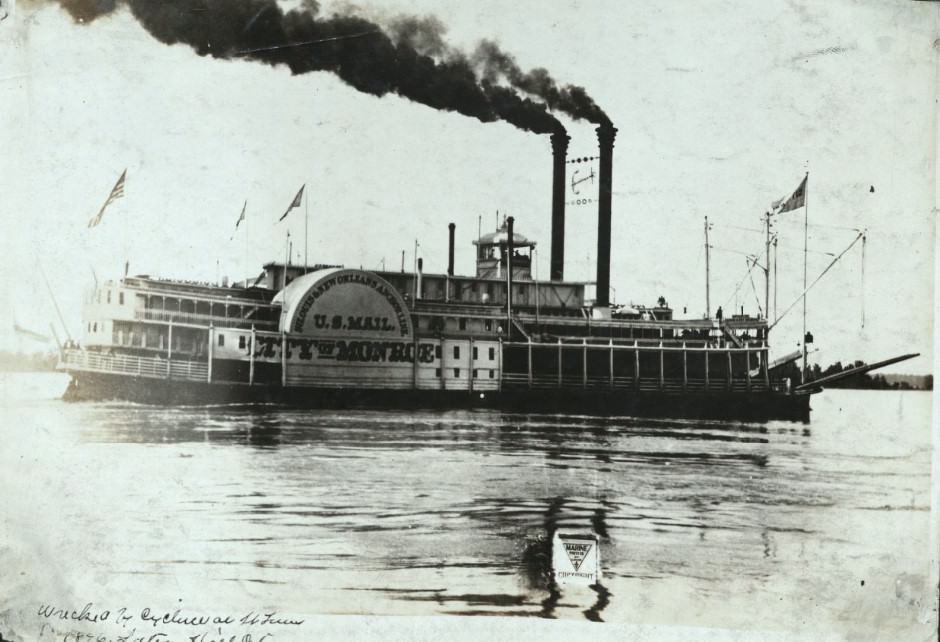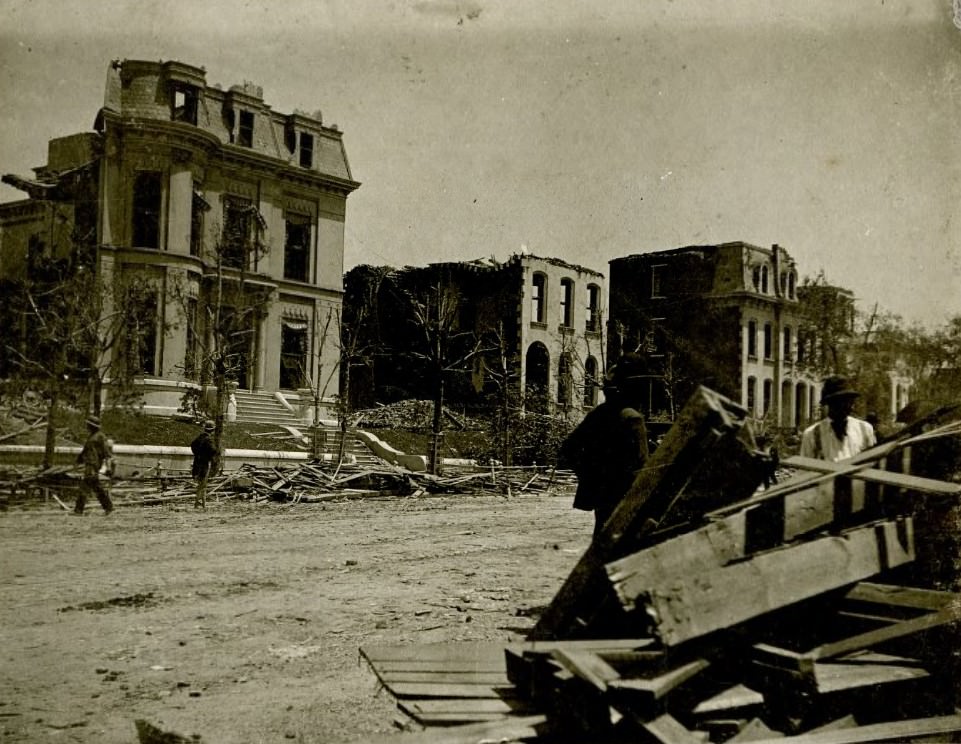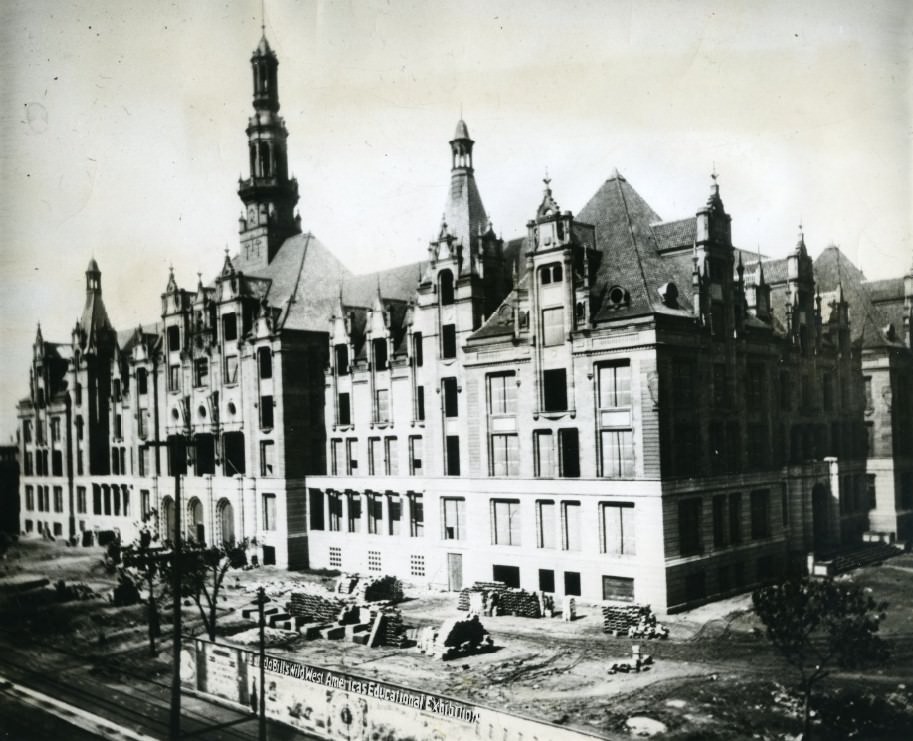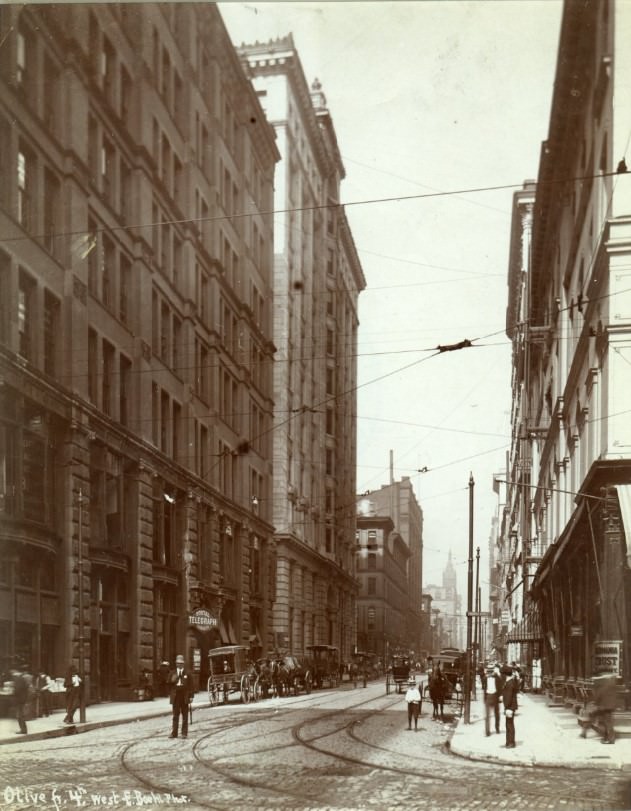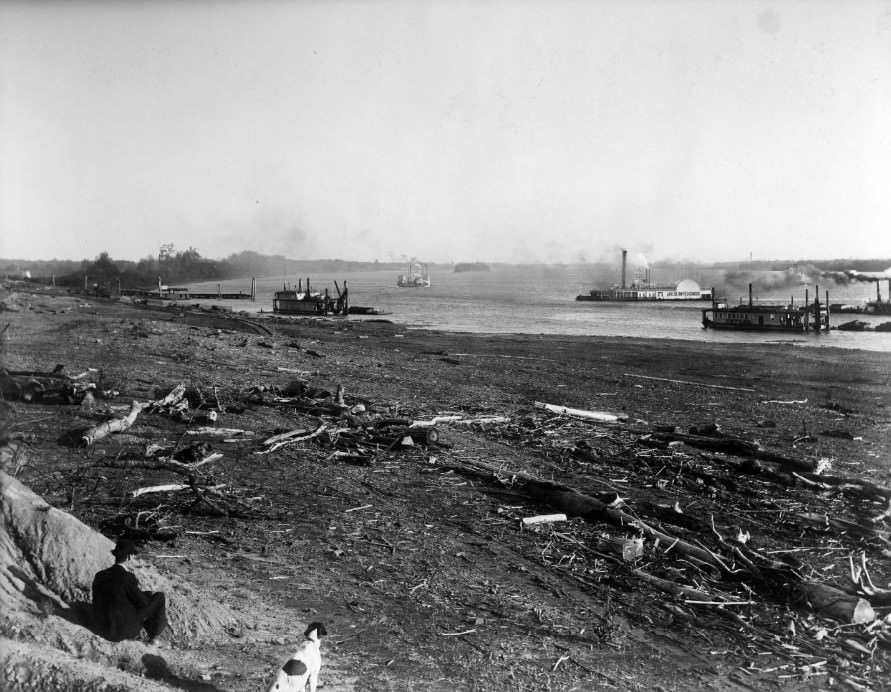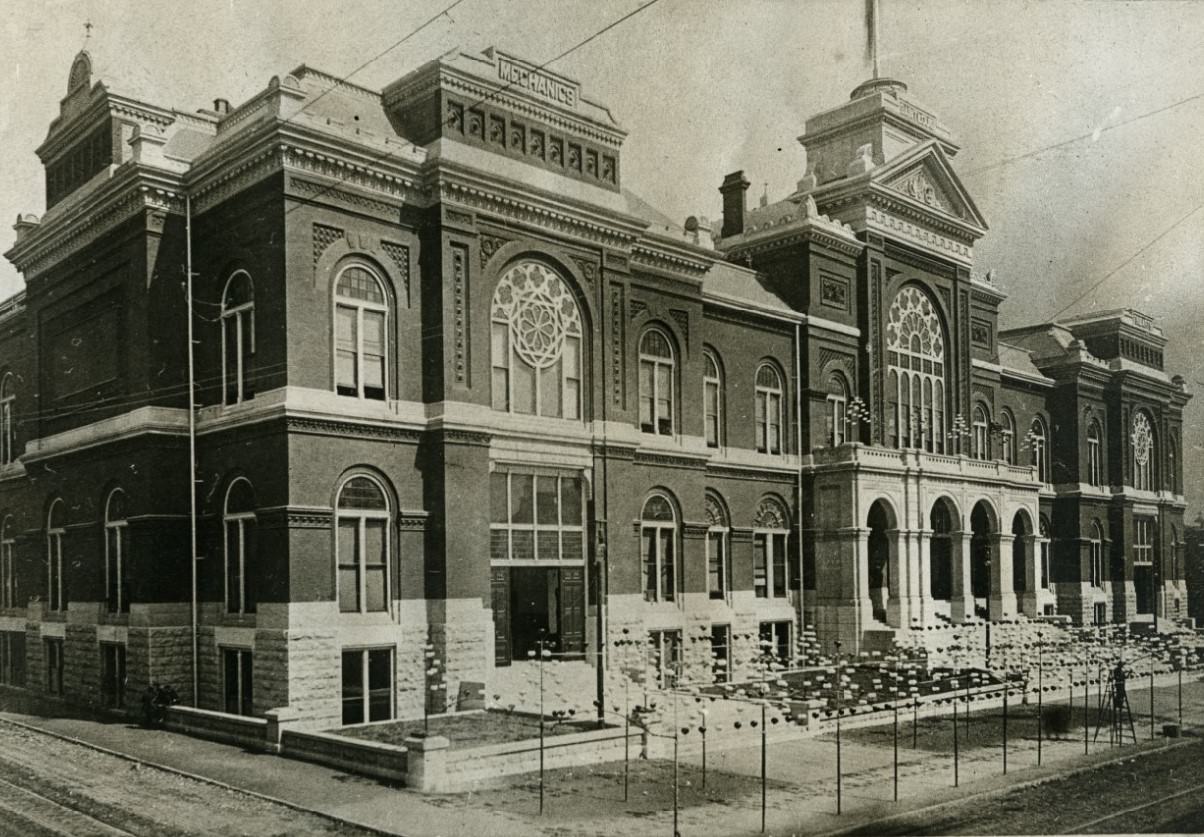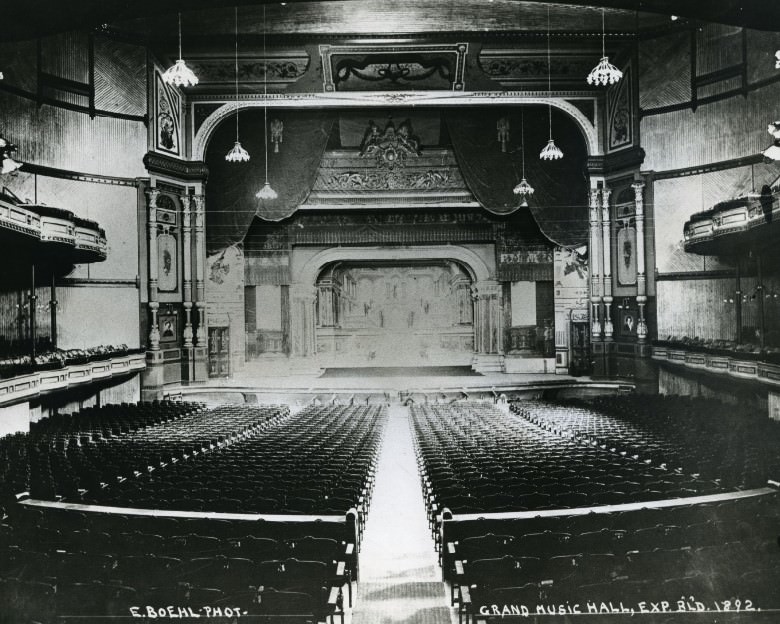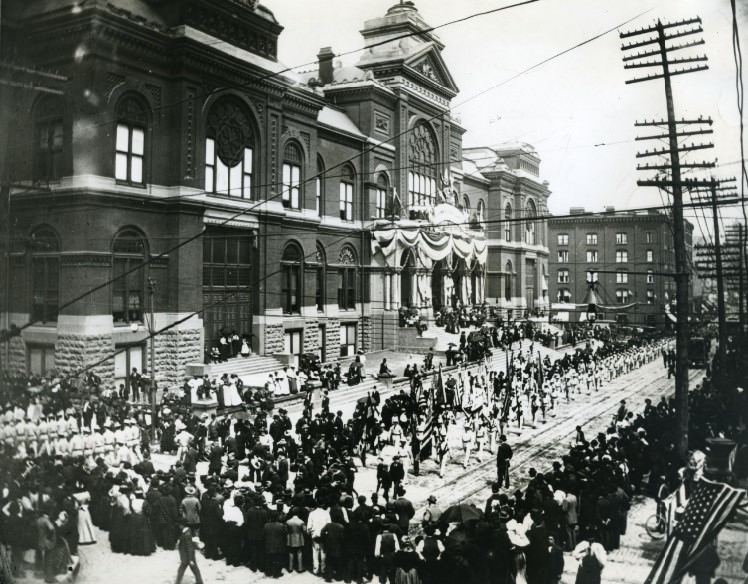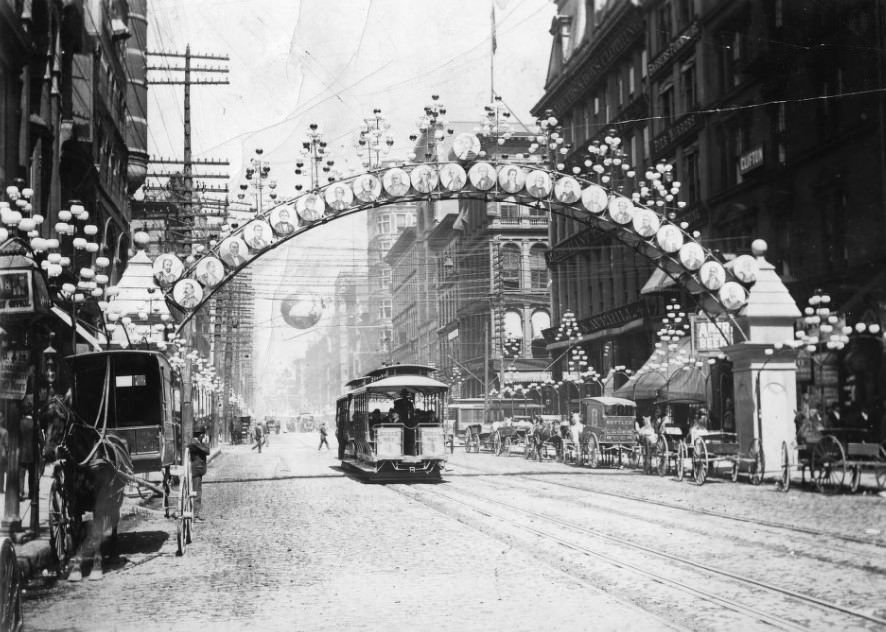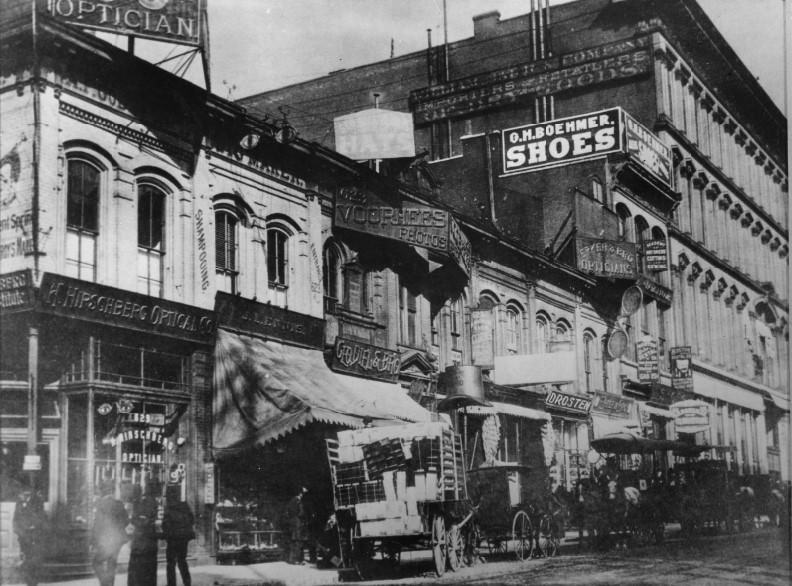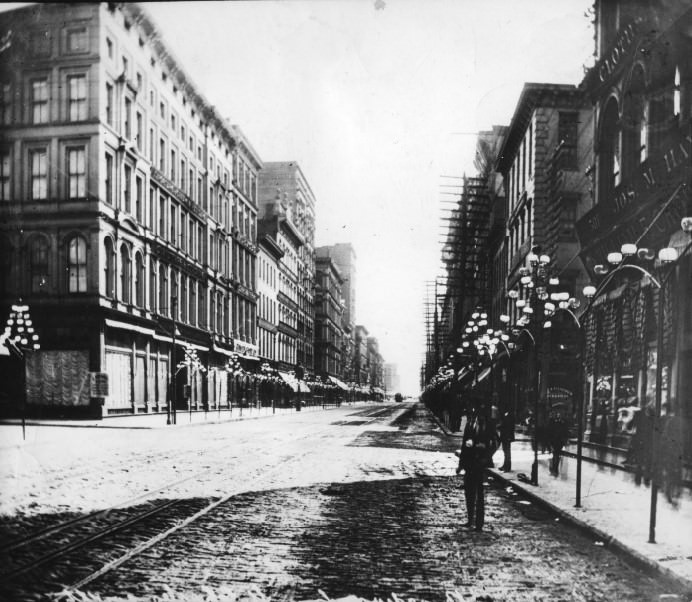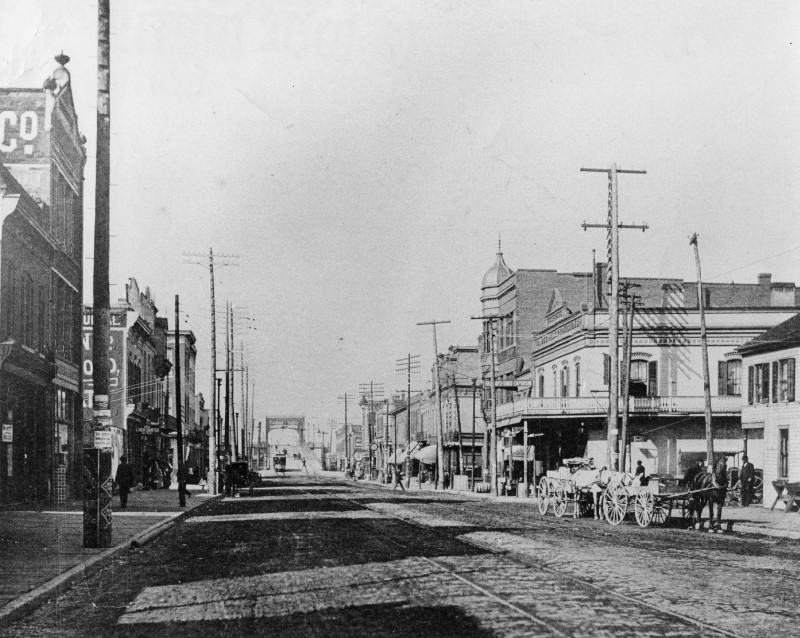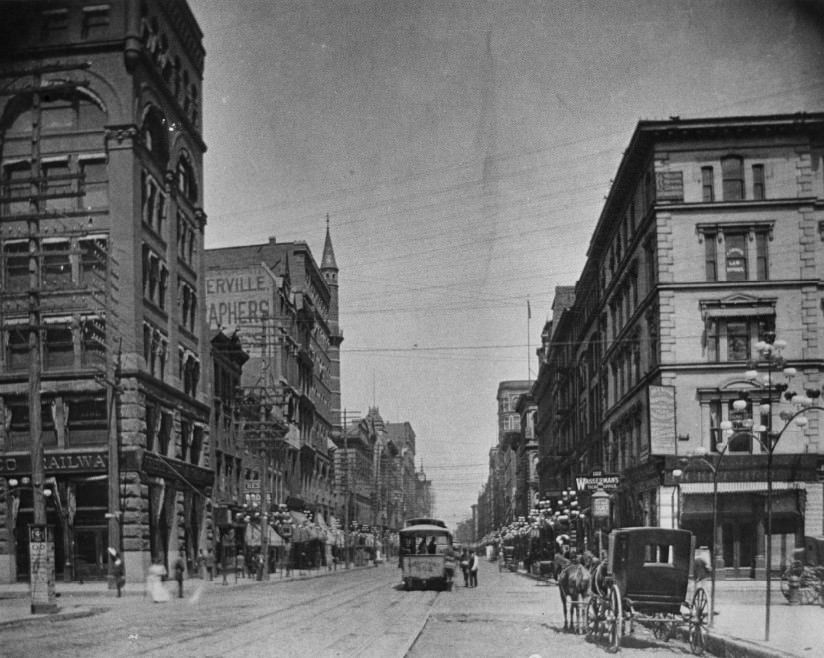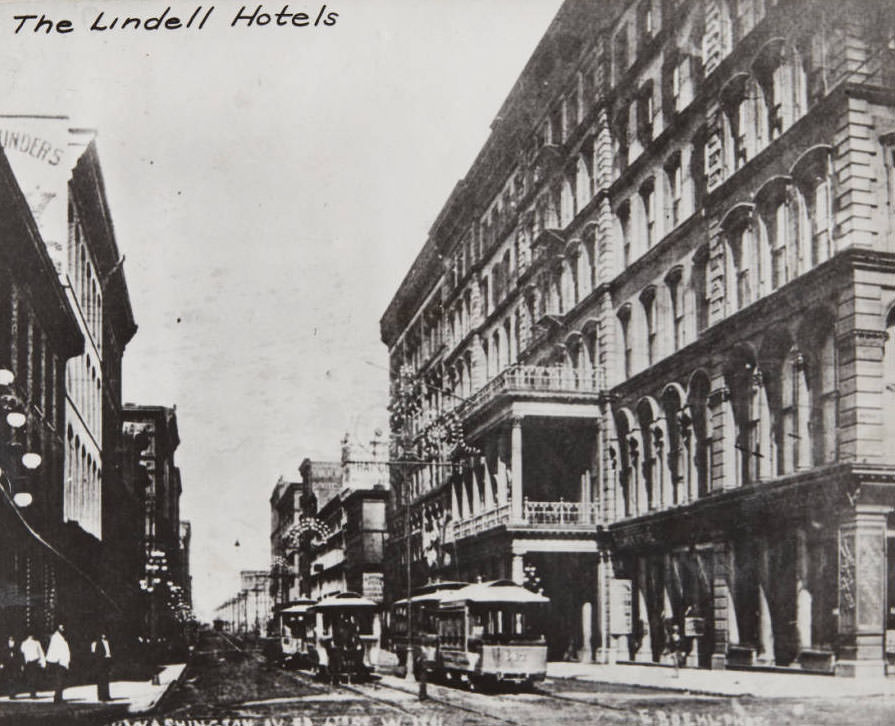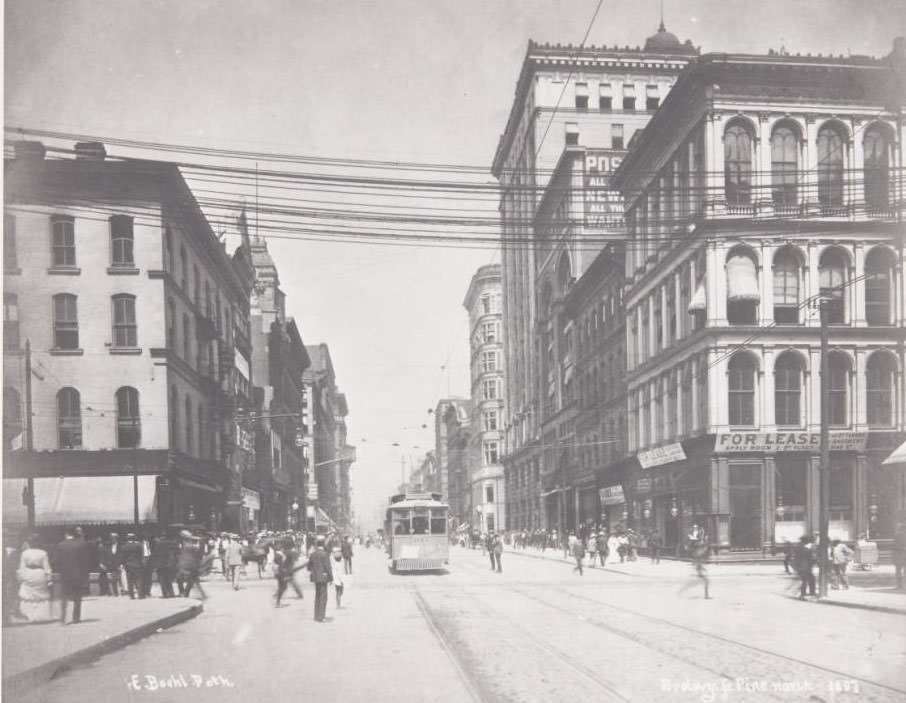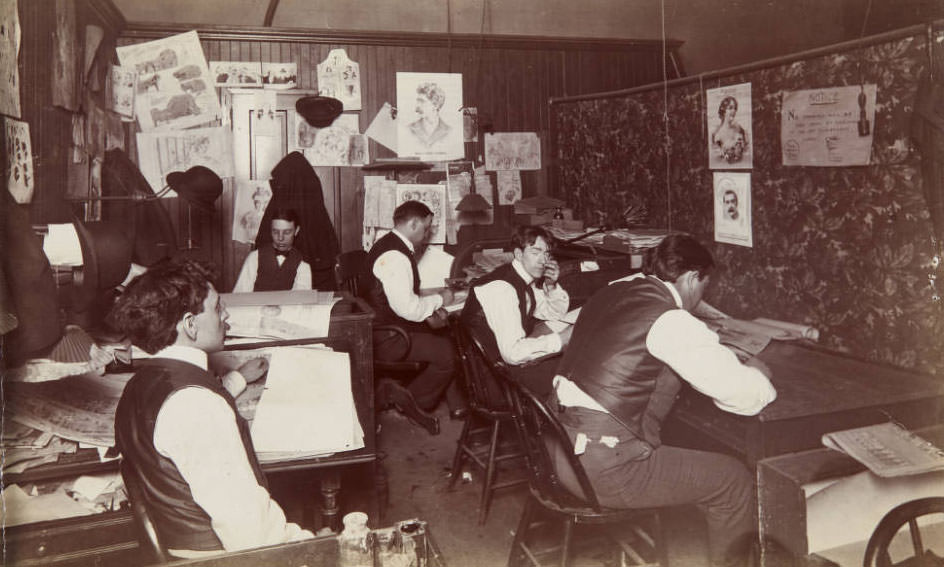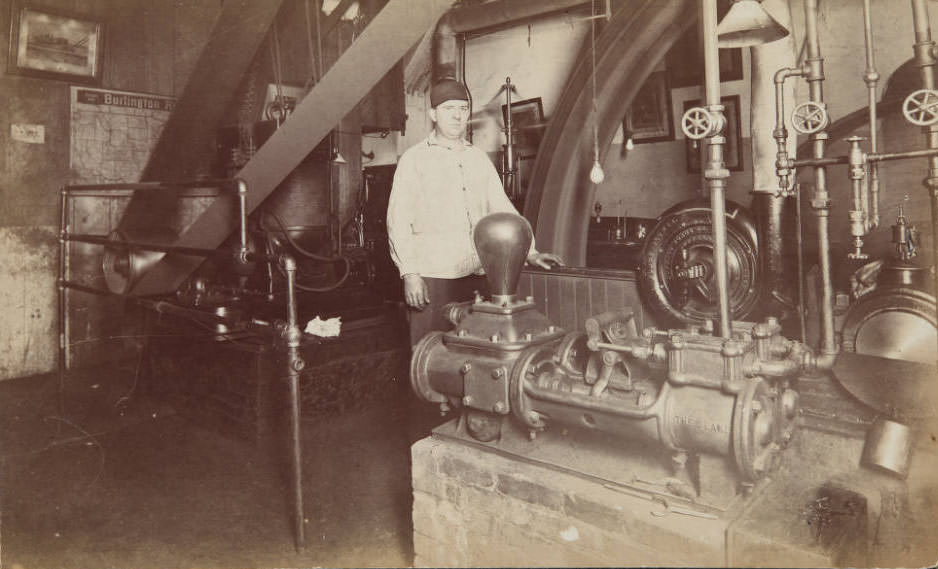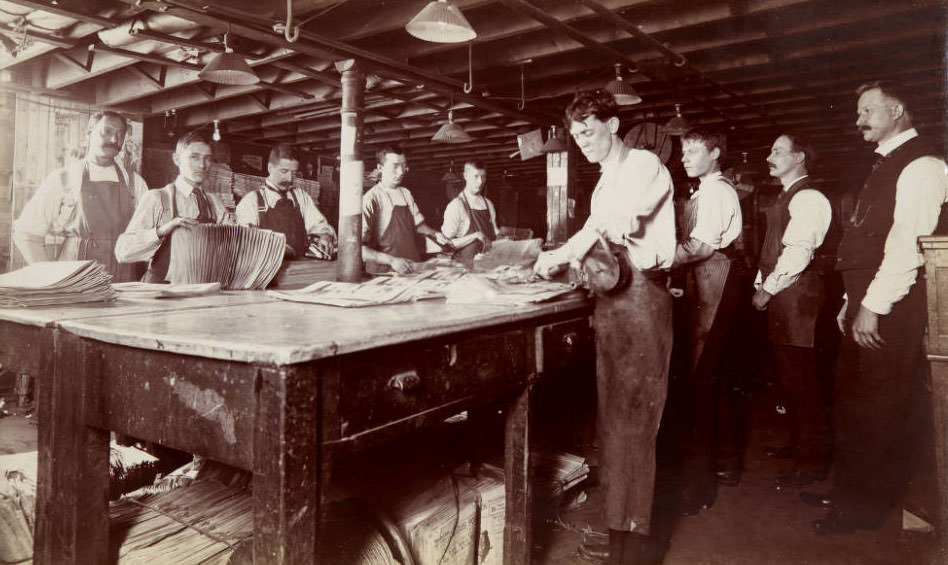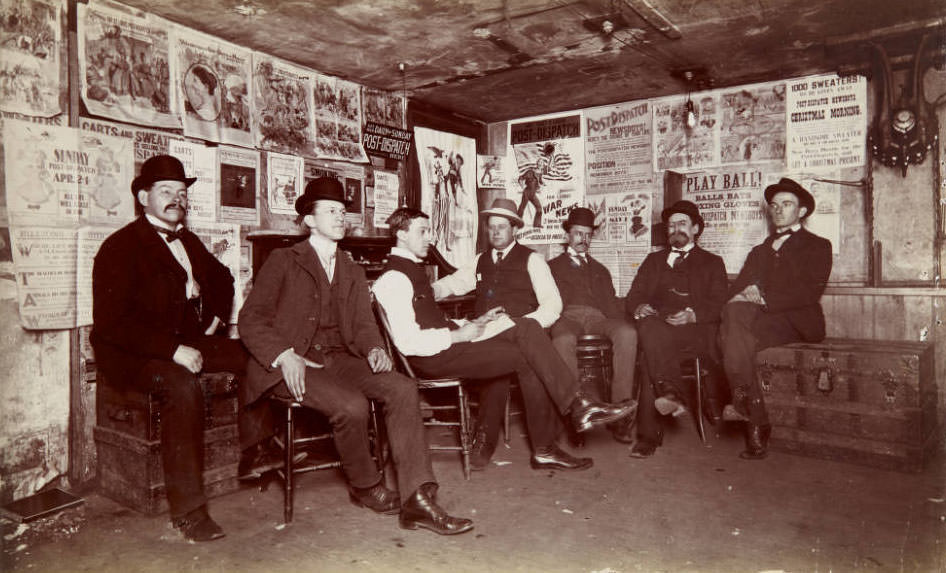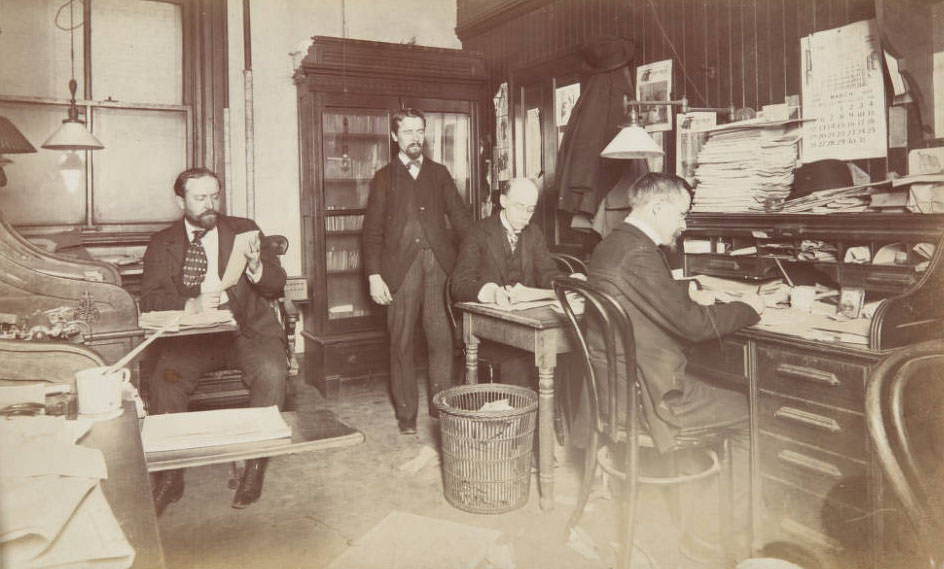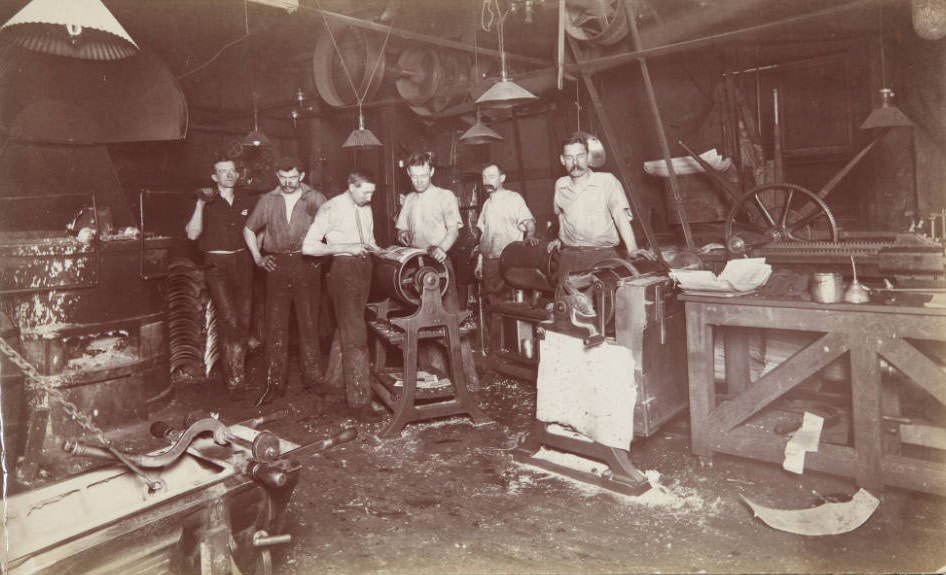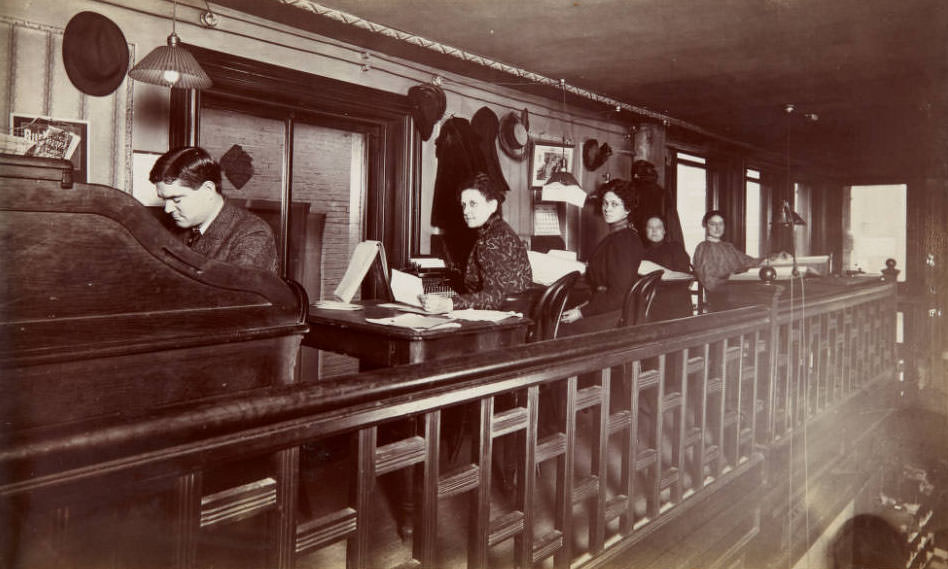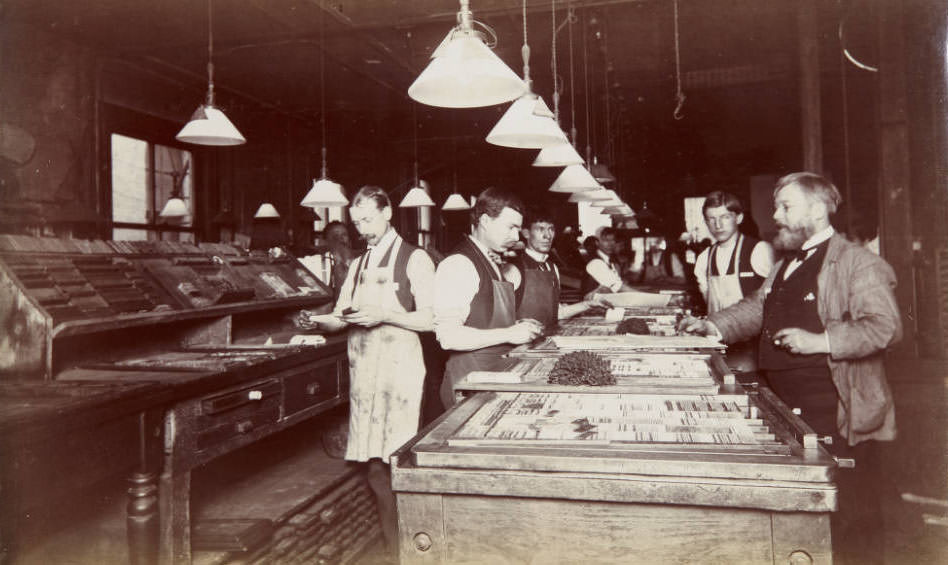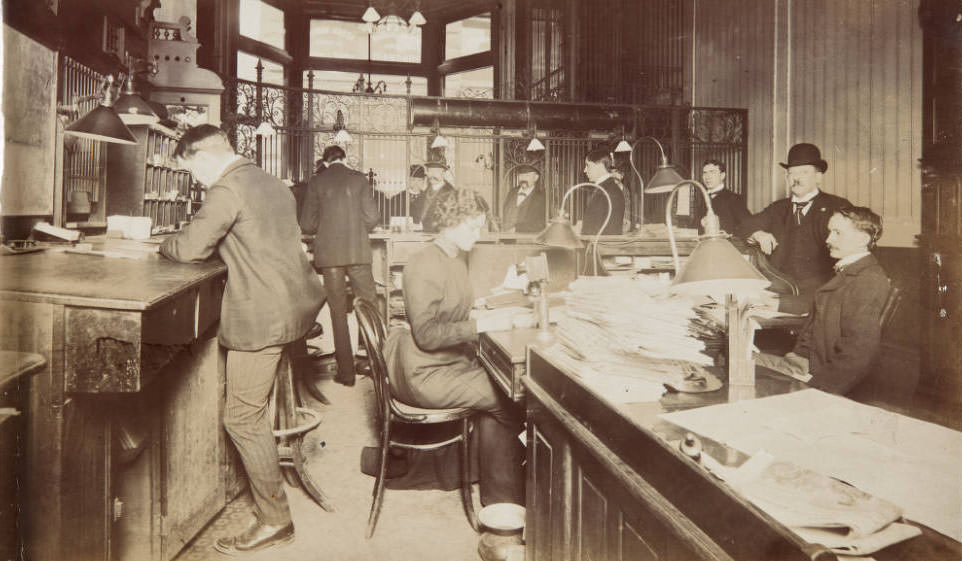In the 1890s, St. Louis was a bustling metropolis located in the state of Missouri in the midwestern United States. The city had a population of around 500,000 people and was a major hub for transportation and commerce. It was located along the Mississippi River and was a key stop on the Oregon and Santa Fe trails, which were used by settlers and traders traveling westward.
St. Louis was also an important center of industry, with a range of manufacturing companies operating in the city, including breweries, ironworks, and cotton mills. The city was known for its production of iron and steel, which were used in the construction of buildings, bridges, and other infrastructure projects.
Despite its prosperity, St. Louis was also a city of contrasts in the 1890s, with significant social and economic divides between different groups. African Americans in the city faced widespread discrimination and segregation, and there were also significant income disparities between the city’s wealthy and working-class residents.
In the 1890s, St. Louis was also a center of cultural activity, with several museums, libraries, and theaters serving the city’s diverse population. One of the most significant events to take place in the city during this time was the World’s Fair, which was held in 1904. This international exposition attracted millions of visitors from around the world and showcased the latest technological and cultural achievements of the time.
The 1890s were a time of great change and growth for St. Louis. The city was a hub of economic activity and a center of cultural and intellectual life, but it was also a place of significant social and economic challenges. Despite these challenges, St. Louis was a city with a rich history and a bright future, and it played an important role in shaping the development of the United States in the late 19th and early 20th centuries.
#1 Broadway in St. Louis in 1897.
#2 Roof Garden U.T. Blg, 1894
#3 An elevated view of an alley, as well as several destroyed buildings, residential properties, and a church in a St. Louis neighborhood after a tornado hit on May 27, 1896.
#4 Cargo and steamboats lining the Saint Louis levee in the 1890s.
#5 St. Louis levee, 1890’s.
#6 The Tower Grove Dairy, located at 2922 Oregon Avenue, St. Louis, 1894
#7 St. Nicholas Hotel on Locust Street between Eighth and Ninth Streets, 1894
#8 Annie Dell with tow and cargo. Crew posing on the bow. Gasconade River, carrying wheat, 1890.
#9 This levee scene taken just after the cyclone of 1896, shows the damage to the transfer boat Ma dell.
#10 Union Station’s Grand Hall during the original opening gala, September 1, 1894.
#11 Old Court House, St. Louis, Missouri, 1895
#12 City of Madison, 1894.
#13 Locomotive in front of Simmons Hardware, 1890
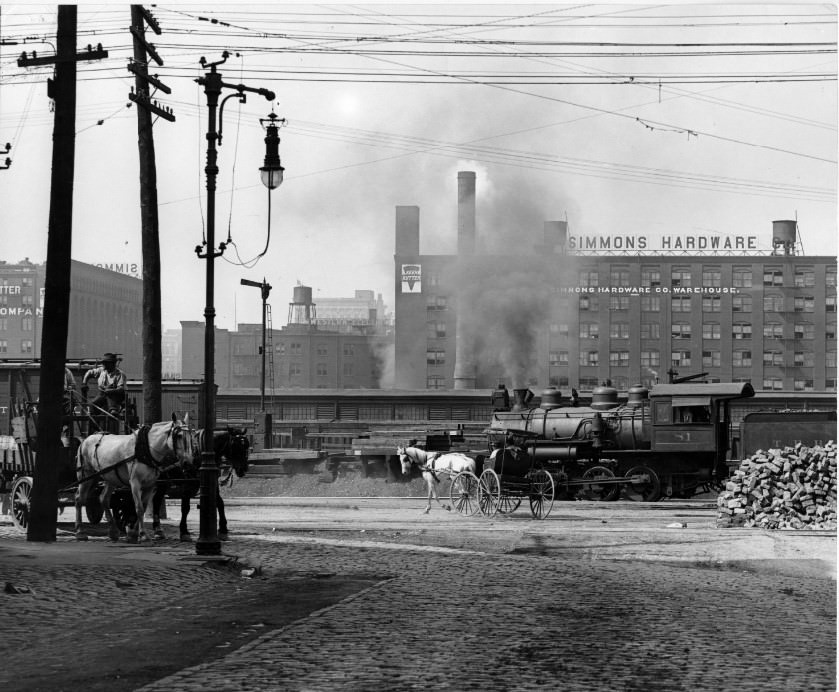
In the mid-ground there are two horse drawn carriages, one is an enclosed passenger carriage and the other has an open top and is being driven by two workmen. In the left portion of the photograph there is a large pile of cobblestones and a steam locomotive. The locomotive is identified on the photograph as "engine 81 of the Terminal Railroad Association". The background of the image contains a tall smokestack and several large factory buildings. The buildings include a Simmons Hardware Co. Warehouse, a Western Electric Company building, and several industrial sites.
#14 The Old Exposition and Music Hall, 1890
#15 Locust Street in St. Louis looking east across the intersection at Broadway, 1896
#16 The debris and structural damage of a barn, building, and wagon caused by a tornado on May 27,1896 in St. Louis, Missouri,
#17 Competitive Design for the Missouri Building, 1904 World’s Fair, 1890
#18 Christ Church Cathedral, 1895
#19 12th St. From Washington Ave. South, 92′, 1892
#20 A decorative arch, put in place for the visiting Elks, as pictured at Anheuser-Busch Brewery in 1899.
#21 This is the Anheuser-Busch brewery, 1899, with a decorative arch in place in honor of visiting Elks, who held their national convention in St. Louis in June of that year.
#22 Ead’s Bridge, Art Work of St. Louis, 1895
#23 The Washington Avenue streetcar loop in St. Louis in 1890.
#24 Aboard the Evansville on the Green River, 1890
#25 Jefferson Barracks – 1898 Headquarters, 1898
#26 Jefferson Barracks – Camp Stephens Artillery Battery, Spanish-American War, 1898
#27 Jefferson Barracks, showing the old Guard House. Besides many other incidents, amusing and tragic, the old Guard House was the genesis of the new Jefferson Barracks.
#28 Camp Stephens, Jefferson Barracks, showing the tent city which stood on the reservation throughout 1898.
#29 Large, multi-story building destroyed in the May 27, 1896 tornado which hit St. Louis, Missouri.
#30 The intersection of Pine and Broadway in St. Louis in the late 1890s. The view is looking north on Broadway across Pine.
#31 Fourth Street in St. Louis looking north across the intersection with Pine Street.
#32 This Boehl street scene photo was taken looking west on Washington Avenue at Sixth Street in 1891.
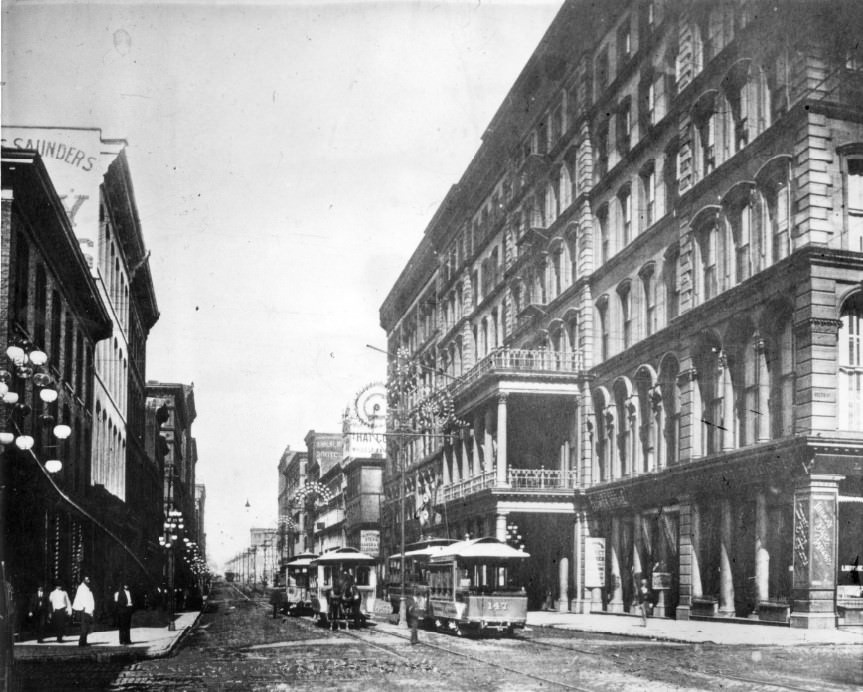
The building on the northwest corner at right is the Lindell Hotel, which was rebuilt in 1874 after having been destroyed by fire. Spurred by an offer of $100,000 from Washington Avenue businessmen, who felt a major hotel would encourage commerce on the street, reconstruction was started on the Lindell.


